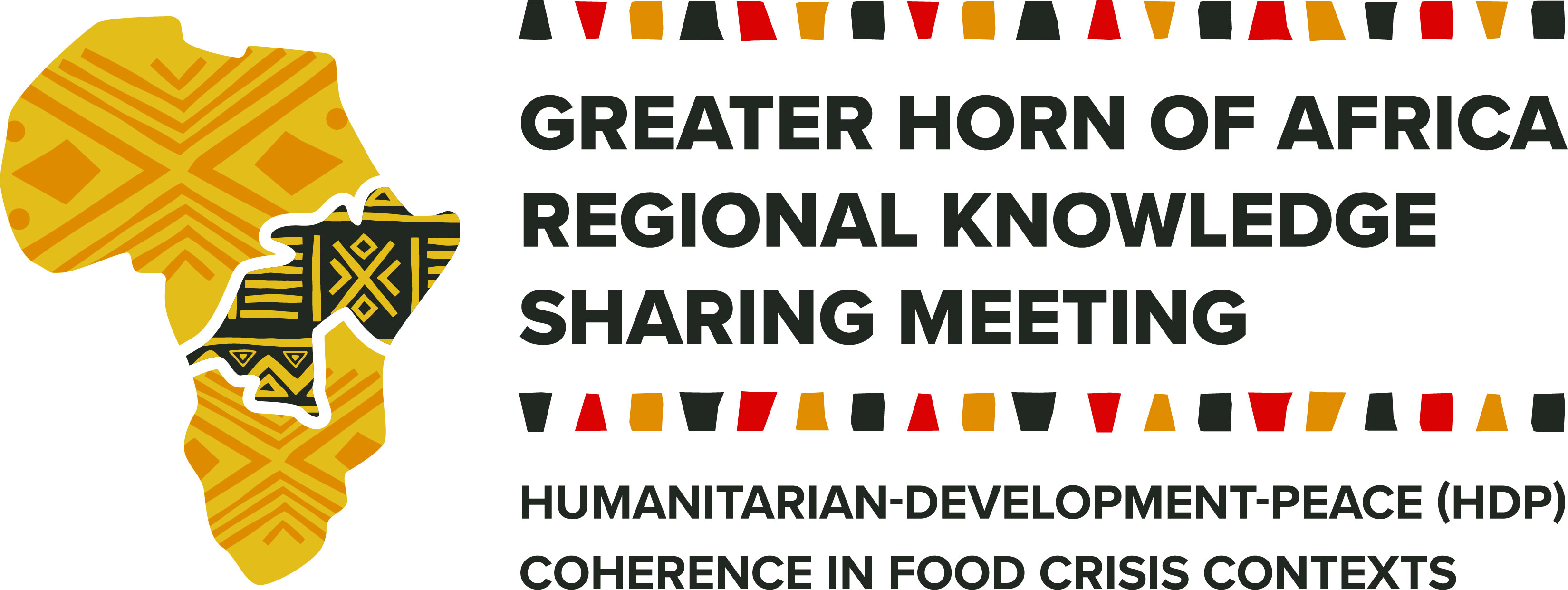Regional Knowledge Sharing Meeting: Greater Horn of Africa
Humanitarian-Development-Peace (HDP) Coherence in Food Crisis Contexts
• May 9-12, 2023 | Naivasha, Kenya •

The unprecedented food crisis situation in the Horn of Africa has created demand in the food security community for discussions about how to achieve humanitarian-development-peace (HDP) coherence. HDP coherence involves linking efforts across the spectrum of programming from short-term relief to long-term peace and development.
From May 9-12, 2023*, USAID's Bureau for Humanitarian Assistance, Bureau for Resilience and Food Security, Kenya and East Africa Mission, and IGAD, in collaboration with IDEAL and RLA, convened the Greater Horn of Africa Resilience Network's stakeholders for a peer-to-peer Regional Knowledge Sharing Meeting (RKSM) to discuss how to work towards HDP coherence to address the food crisis. This event took place in Naivasha, Kenya and included six countries: Democratic Republic of Congo (DRC), Ethiopia, Kenya, Somalia, South Sudan, and Uganda. Access a collection of resources and materials shared during group sessions at the RKSM here.
In 2024, IDEAL published a report presenting the RKSM’s primary learnings on improving HDP coherence across the Greater Horn of Africa and hosted a webinar to share insights on key highlights and lessons learned.
Read the Report Watch the Webinar
*May 12 was dedicated to optional skills building workshops. To learn more about these options, click here.
Questions? Contact us at rksm-horn@fsnnetwork.org
RKSM in the Horn
The RKSM captured and shared knowledge around promising practices, entry points, tools and mechanisms, and opportunities and constraints to pursuing HDP coherence. In the spirit of HDP coherence. It also offered opportunities for organizations operating in the region, including local partners, to forge and strengthen relationships with one another. The RKSM offered a mix of plenary and small group sessions, as well as opportunities for discussion and action planning by country. Interactive sessions ran under five themes:
- Joint Planning: Practical ways to join up humanitarian, peace, and development program design and planning at a field level;
- Collective Impact: Proven approaches to sequence, layer, and integrate to address the food crisis;
- Improved Monitoring, Evaluation, and Learning (MEL) for HDP Coherence: Promoting better analysis, utilization, and coordination of evidence and learning for timely and informed decision-making;
- Pathways Toward Climate Resilient Livelihoods: New and creative adjustments to livelihoods programming including participant-led program design, interaction of livelihoods and migration, climate resilient agriculture, and improved water management.
- Adaptive Management: Working flexibly to adjust programming, including processes for taking rapid action, utilizing reflective action planning processes and mechanisms and shock-responsive approaches.

This event is made possible by the generous support of the American people through the United States Agency for International Development (USAID). The contents are the responsibility of the Implementer-led Design, Evidence, Analysis and Learning (IDEAL) Activity and the Resilience Learning Activity (RLA) and do not necessarily reflect the views of USAID or the United States Government.